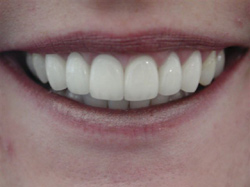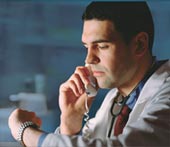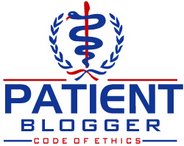
I have posted previously about the emotions of being a doctor, bringing the stress home, and when patients make the ultimate bad health decision. That makes it seem like all of my days are bad - they aren't. It makes it sound like I have second thoughts about being a doctor - I don't. There is no other job I can see myself doing.
But despite that, it helps to be able to have good days to offset the difficult ones. I had the opportunity lately to give good news to some of my patients. That good news followed the sinking feeling of potential bad news in both instances.
The first was a 37 year old gentleman who I had cared for the past 10+ years (both him and his family). He came in to see me for a testicular mass. Normally, testicular cancer only affects men in their 20's. Since I trained at Indiana University, home of Larry Einhorn - the doctor who discovered cis-platinum - the cure for testicular CA. This is where Lance Armstrong went for treatment of his cancer. This patient came in with a lump on his one of his testicles, worrying if it may be cancerous. Palpating it, I could not deny that it was worrisome. I sent him to get a testicular ultrasound which soon came back as "worrisome."
Then I had to make the phone call I never like to give. I called the patient and told him: "I want you and your wife to come in to talk to me." They knew what this meant. It meant that there was bad news.
I never beat around the bush when they are in the office - they know what I am going to say: "the ultrasound showed something very suspicious of cancer. I am going to send you to a urologist and he is going to set you up to have the testicle removed." I reassured them that even in the worst-case scenario, testicular cancer has a good prognosis. I knew this did not mean much to them; cancer is cancer.
My nurse, whose husband had testicular cancer at the same age, told his wife that if she could do anything for them, they just needed to call. Since he was in his upper 30's, the most common cancer is seminoma. When I trained, this was a little harder to treat than the germ-cell tumors common at younger ages. This is what my nurse's husband had, and it became metastatic after the first round of treatment. He required fairly aggressive chemotherapy, and is now a cancer survivor.
 The day of the surgery, we got a call from the urologist - the diagnosis was teratoma, a benign tumor. Who knows how long it had been there, but it had probably gone from a germ-cell tumor to full maturity as a teratoma. Germ-cell tumors are similar to stem cells in that they can develop into many kinds of tissue. Teratomas are tumors resulting from the full development of germ-cells into mature non-cancerous cells. In women, these are the tumors that can contain hair and teeth. I once heard a joke that to diagnose a teratoma in women, you put some ice to the abdomen and use your stethoscope to listen for chattering teeth.
The day of the surgery, we got a call from the urologist - the diagnosis was teratoma, a benign tumor. Who knows how long it had been there, but it had probably gone from a germ-cell tumor to full maturity as a teratoma. Germ-cell tumors are similar to stem cells in that they can develop into many kinds of tissue. Teratomas are tumors resulting from the full development of germ-cells into mature non-cancerous cells. In women, these are the tumors that can contain hair and teeth. I once heard a joke that to diagnose a teratoma in women, you put some ice to the abdomen and use your stethoscope to listen for chattering teeth.The end result: good news.
My second patient was a 65 year-old gentleman who was new to the practice. He said he had been having lower abdominal pain on the left, which he suspected was a hernia. Upon exam, he had a large mass in the left lower quadrant. It is really hard to know how to respond when you find something significantly worrisome on exam. I asked him if he had noted the mass and he said he had. I told him that this was worrisome, but we had to get a CT scan to figure out what it was.
There is not much good that it can be when there is a mass like this. I went over the possibilities - certainly there was cancer as a possibility, but maybe it was just an intestinal obstruction causing what felt like a mass. It was not real tender, so I doubted that an infectious etiology was the cause.
 I usually do what I can to minimize the wait for patients in this circumstance. It is tough to say, "I think it could be cancer, but you have to wait until next week to find out." I know that every night of waiting will be sleepless, so I get it the test as quickly as possible. Yesterday I got the surprising news that the CT scan showed "probable diverticulitis." This was a shock to me, as diverticulitis is usually tender to touch on exam. But he reminded me when I called him that he was on antibiotics for his prostate. This was a phone call I was glad to make.
I usually do what I can to minimize the wait for patients in this circumstance. It is tough to say, "I think it could be cancer, but you have to wait until next week to find out." I know that every night of waiting will be sleepless, so I get it the test as quickly as possible. Yesterday I got the surprising news that the CT scan showed "probable diverticulitis." This was a shock to me, as diverticulitis is usually tender to touch on exam. But he reminded me when I called him that he was on antibiotics for his prostate. This was a phone call I was glad to make.There is a great honor to be able to stand by people during their hardest times. I really find it is one of the more satisfying parts of what I do. But it sure feels good to take a big weight off of people's shoulders. It sure feels good to give good news.

